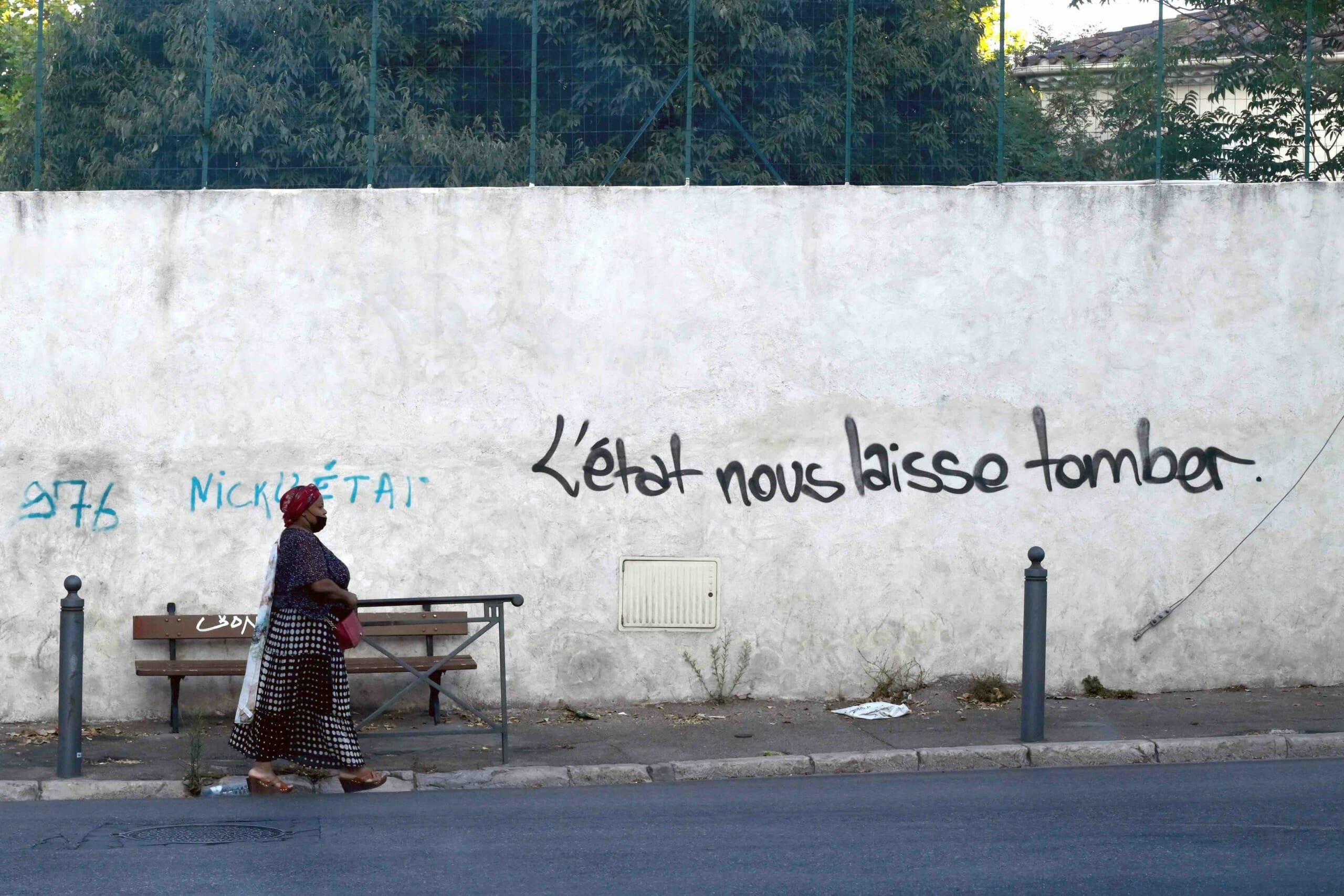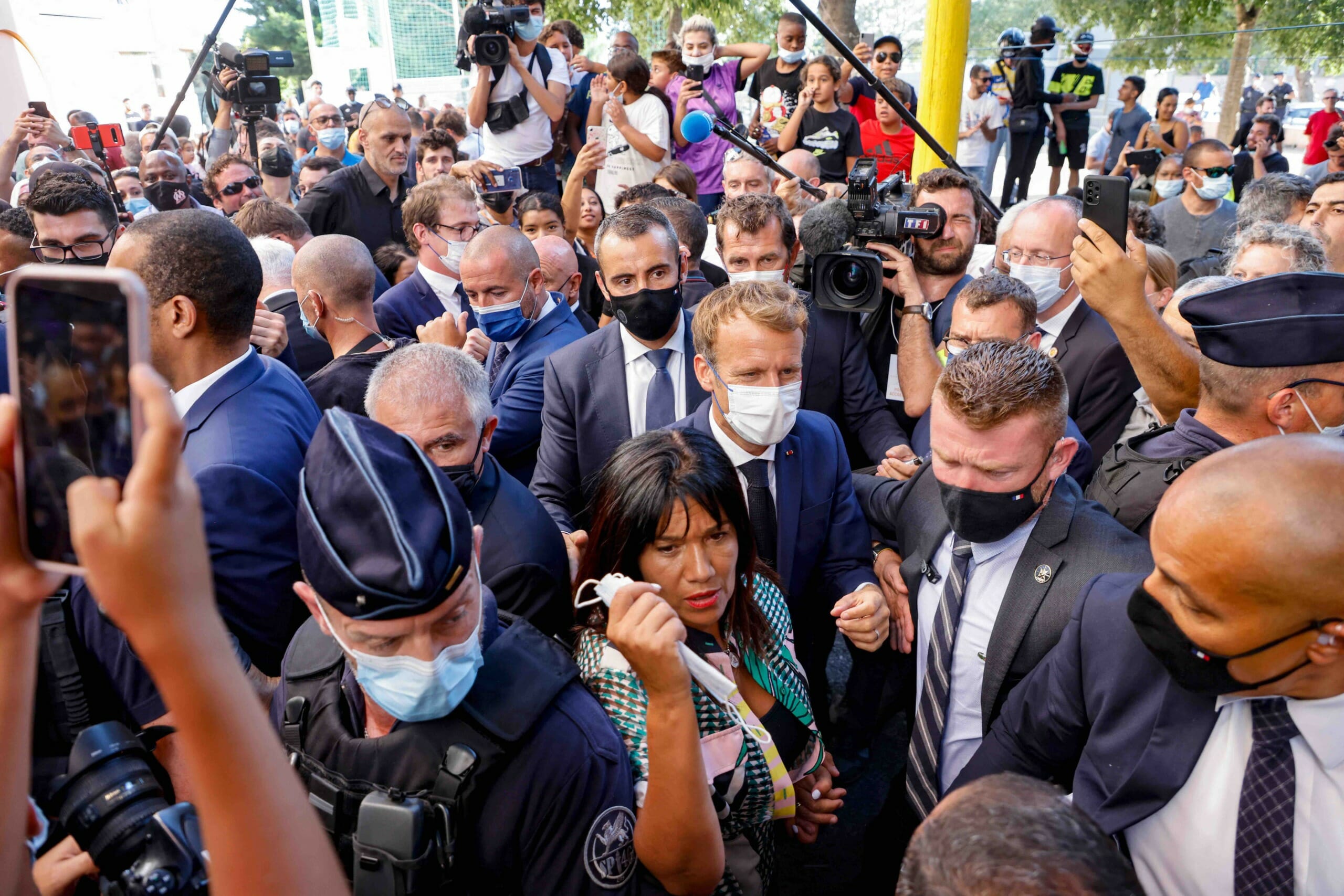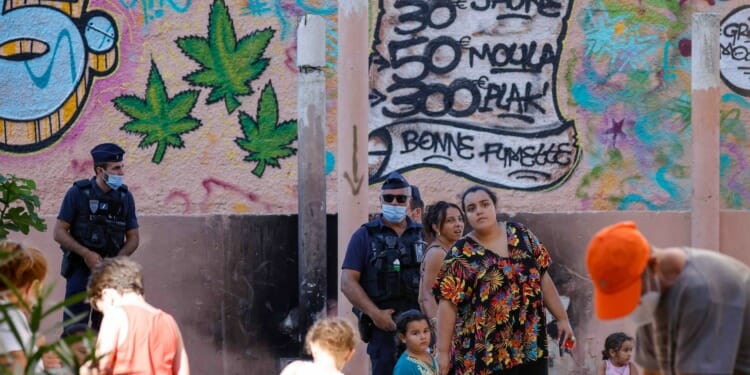Looking back, Marseille’s long criminal history and reputation as a drug trafficking capital can be traced to the “French Connection.” The French connection was a drug trafficking route through Marseille, established in the 1930’s when mafia leader Paul Carbone transported poppy seeds from Turkey to France via Marseille and then on to Canada and eventually the US to be used in the manufacturing of heroin.
Back then, Marseille was one of the busiest ports in the Mediterranean, meaning shipments were harder to detect. With its reputation as a drug capital being cemented over the years and its status as France’s major port city, violence has grown in Marseille. In 2018 there were 23 gang-related deaths in France’s second city, in 2019 this climbed to 28 and this year gangland killings have claimed 15 lives, 12 since the beginning of the summer. While the numbers are shocking, it isn’t just this worrying escalation that has French citizens so scared.

There is a concerning trend that the age of the victims seems to be decreasing. The latest victim, a boy named Rayanne, was shot dead by a young man on a scooter outside the Les Marronniers housing estate where he lived. Two other boys were wounded in the shooting, one aged 14, the other only eight.
Rayanne’s family insist he was just a normal boy, who attended school and enjoyed playing with friends, and that he was caught in the crossfire. Investigators however have evidence to the contrary, reporting that he was a chouffeur (lookout) paid by one of the gangs to patrol their turf. Whether he was an innocent victim or a target for a rival gang, a life lost at 14 has shaken Marseille.
Police, magistrates, social workers and local journalists all attest to the fact drug auxiliaries are getting progressively younger. One social worker spoke to Le Monde newspaper: “In 2010 the first time a 16-year-old was killed it was a thunderclap, but we thought it was a one-off. With the benefit of hindsight, we can see it was the start of a trend.”
An investigating magistrate told Le Monde that young people are being recruited by gangs via the Internet and many come from estates in other French cities. They say the gangs tell the young recruits that it is “like a summer job, but they’re much more vulnerable than the local lads because they’re so isolated.”
Phillippe Pujol, a writer and expert on the poor northern neighbourhoods of Marseille, says many young recruits become indebted to gang leaders and some even dip into their supply. According to Pujol, “Young and in debt, they want to make big sales, so they push out further from their home turf. And that’s where the competition comes. They come up against other kids from other gangs, also playing high stakes.”
Related Articles: Blood in the Streets: Duterte’s Drug War | US Gun Industry Sued for Fueling Mexican Gangs
President Emmanuel Macron visited Marseille and the gangland violence formed the backdrop for his appearance. Residents pleaded with Macron for help on Wednesday. This surge in deadly shootings has put long-standing social problems on the political agenda. A social worker from Bassens told AFP ahead of Marcon’s arrival, “We’re scared…sometimes you hear shooting like it’s a Western film.” Citizens were asking for more police, public investment, and better housing as encounters with drug dealers are now a regular occurrence.

Just two weeks after Rayanne was shot, Macron told police officers on Wednesday, “We won’t give up…We have improved results. We’ll carry on, to the end, in making sure drug-dealing spots close permanently.” While his claims are accurate and death rates remain below those in 2016 and the particularly violent period in the 1980s, these tit-for-tat murders, as dubbed by the police, still give the impression the drug turf war in Marseille is not slowing down.
Local residents feel forgotten. As one told AFP, “Nobody cares what happens here…I get the sense that they [politicians] think, ‘let’s leave these paupers and foreigners to kill each other out there.’”
Poverty and urban squalor have contributed to the hold the drug trade has over Marseille. People in these urban estates are desperate for money and at times the school system is failing young people. Mayor Benoit Payan told AFP, “the schools are unworthy of the republic” describing them as being in a “woeful” state. This combination has made easy targets of young people as gangs can promise them fast money in return for loyalty.
While drug gangs and turf wars may not be unique to Marseille, the decreasing age of victims, whether innocent bystanders or lookouts for gangs, is becoming a recurring theme that cannot be ignored. Marseille has a long-established reputation as an underworld for crime but it appears that now the heart of the city is under siege, with children caught in the middle of a drug war and no one offering any solutions yet.
Editor’s Note: The opinions expressed here by Impakter.com columnists are their own, not those of Impakter.com.— In the Featured Photo: Local inhabitants and police officers stand in front of a wall displaying prices of a drug sell point. Featured Photo Credit: LUDOVIC MARIN.














